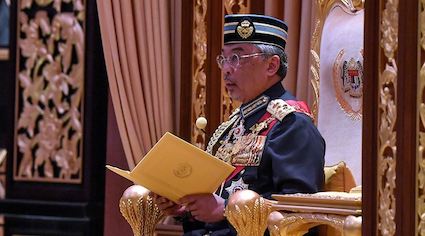The Agong is not above question and criticism

Malaysia’s Constitution and parliamentary system of government follows the British system. And this means the King or Seri Paduka Baginda Yang di-Pertuan Agong is not above question and criticism. The concept of derhaka does not exist and it is not an act of treason to oppose the Agong. Malaysians must realise they live in the year 2021 and not the year 1621.
NO HOLDS BARRED
Raja Petra Kamarudin
In early 1628, King Charles I clashed with Parliament regarding the new taxes he wanted to impose to pay for the cost of the war with Spain. When Parliament opposed these new taxes, Charles prorogued or suspended Parliament in June 1628.
In January 1629, Parliament reconvened. But for the next 13 years the relationship between the Palace and Parliament was chaotic. Charles argued that no one, not even Parliament, can question or oppose him, because his authority comes from God.
“… no earthly power can justly call me, who am your King, in question as a delinquent … this day’s proceeding cannot be warranted by God’s laws; for, on the contrary, the authority of obedience unto Kings is clearly warranted, and strictly commanded in both the Old and New Testament …” (King Charles I, during his trial)
The court, however, challenged the doctrine of sovereign immunity and proposed that “the King of England was not a person, but an office whose every occupant was entrusted with a limited power to govern ‘by and according to the laws of the land and not otherwise’.”
King Charles was found guilty and executed at 2.00pm on Tuesday, 30th January 1649.
Malaysia’s Constitution and parliamentary system of government follows the British system. And this means the King or Seri Paduka Baginda Yang di-Pertuan Agong is not above question and criticism. The concept of derhaka does not exist and it is not an act of treason to oppose the Agong. Malaysians must realise they live in the year 2021 and not the year 1621.

